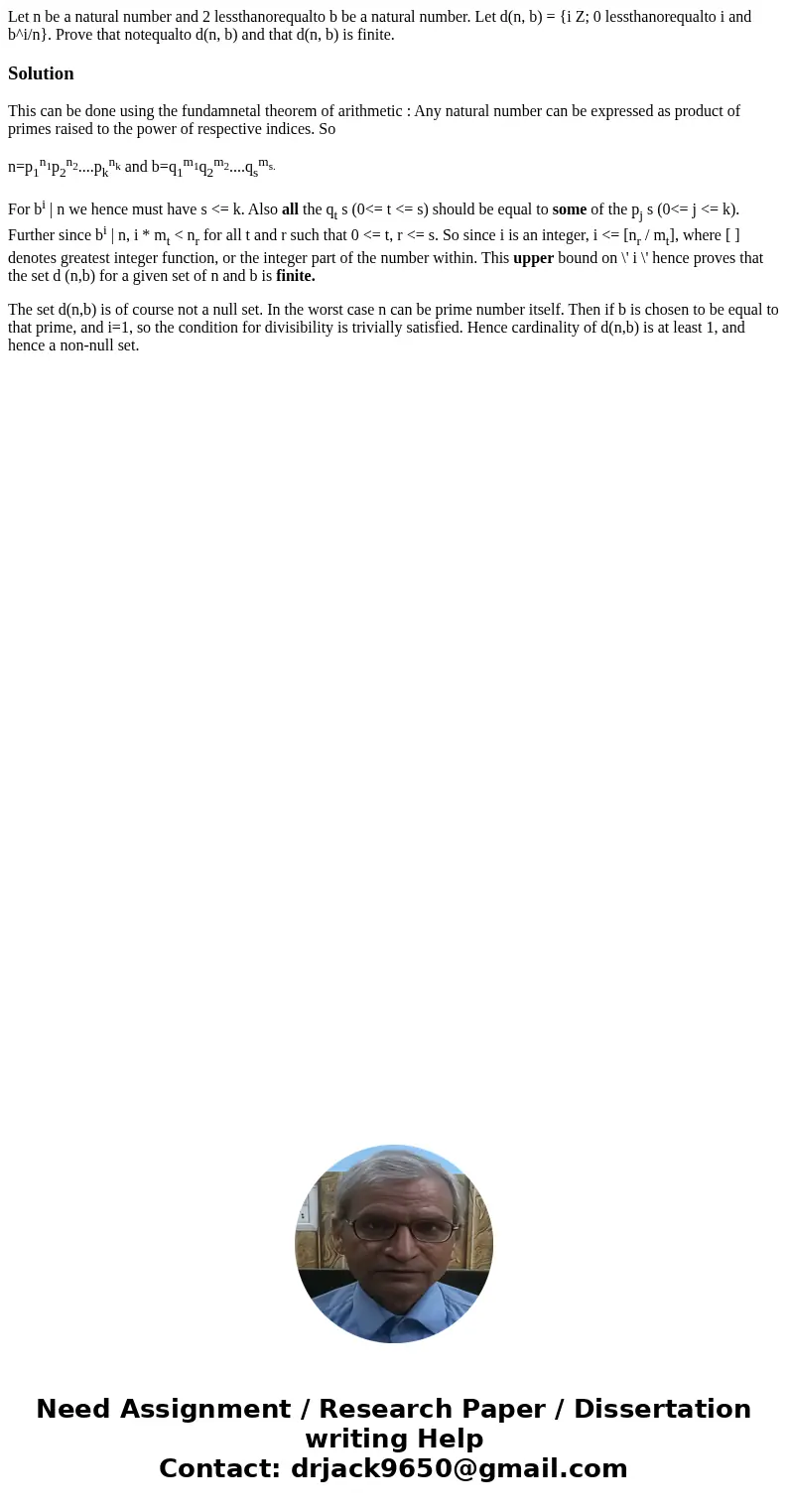Let n be a natural number and 2 lessthanorequalto b be a nat
Solution
This can be done using the fundamnetal theorem of arithmetic : Any natural number can be expressed as product of primes raised to the power of respective indices. So
n=p1n1p2n2....pknk and b=q1m1q2m2....qsms.
For bi | n we hence must have s <= k. Also all the qt s (0<= t <= s) should be equal to some of the pj s (0<= j <= k). Further since bi | n, i * mt < nr for all t and r such that 0 <= t, r <= s. So since i is an integer, i <= [nr / mt], where [ ] denotes greatest integer function, or the integer part of the number within. This upper bound on \' i \' hence proves that the set d (n,b) for a given set of n and b is finite.
The set d(n,b) is of course not a null set. In the worst case n can be prime number itself. Then if b is chosen to be equal to that prime, and i=1, so the condition for divisibility is trivially satisfied. Hence cardinality of d(n,b) is at least 1, and hence a non-null set.

 Homework Sourse
Homework Sourse